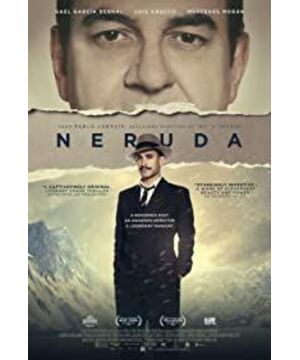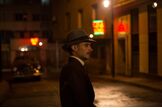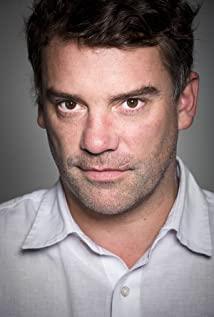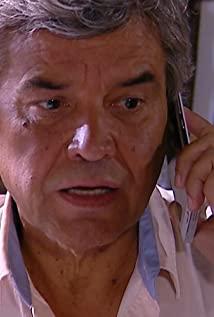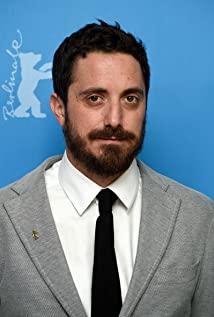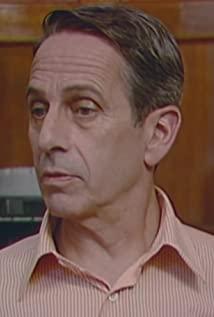Neruda's opening verse in "The Fugitive" (1948) in The Collected Poems:
In the dark night, in the whole life,
Tears dripped on paper, changed in various clothes,
In these oppressive days, I walk,
I am a fugitive pursued by the police.
In clear moments,
Beneath the lonely stars,
I pass through cities, forests, villages, ports,
From one person's door to another's door,
From one person's hand to another's...
In 1985, I was fortunate enough to purchase the "Compendium of Poetry" (Shanghai Literature and Art Edition) translated by the translator Wang Yangle. Since then, it has been turned into a shapeless form. The pages of the book have traces of insects and mosquitoes, witnessing the cycle of the four seasons that pass by. Especially the "Top of Macchu Picchu", I could even memorize it in the first few years. From "Lamps of the Earth" and "The Sands of Betrayal" to his long series of poems in tribute to Whitman's "Wake up the lumberjacks," Neruda's original language was formed.
Neruda's poetry is wild and unrestrained, the metaphors are extremely peculiar, the verses are clear, majestic and magnificent, and the imagination is unparalleled and unparalleled. For him, the sky of poetry is boundless and eternal. Of course, it is thanks to Wang Yangle's translation to read such a delightful poem that I think that no one can surpass it when it comes to Spanish poetry translation. His translation of "Anthology of Modern Spanish Poems" (Hunan People's Edition) is also a collection of poems I often read by Chang Xin.
Undoubtedly, Neruda was a realist poet, but he was not just a realist poet. As he himself said, "A poet who is not a realist is a dead poet, and a poet who is only a realist is a dead poet, and a poet is only unreasonable, and only himself and his It is very sad that the one who loves can understand it. It is very sad that a poet can understand even a fool as stupid as an oyster."
Pablo Larrain, who directed "The Club of the Priests" (see my review), in "The Hunt for Neruda" (2016), uses the voiceover of Inspector Peru Sonio to intercept Neruda in 1948 The escape process of the year after January recreates the poet's escape process and its unbearable spiritual history in a joyful way. But apart from the escape itself, nothing else can be regarded as a true biography of Neruda. The film itself is an idealized artistic re-creation.
At the beginning of the film, Neruda recites the love poem "Twenty Love Poems and One Despair Song" that he wrote 20 years ago. So far, in Latin America, it can be said that his influence is far and wide, and no one Can reach. Although Borges criticized him a lot, he still went his own way, like a beacon towering over the land of Latin America.
Another film about Neruda's escape, "The Postman" (1994), directed by Michael Redford, shows him fleeing to a small island in southern Italy, but the story is about him as an agitator, He gave the unrequited postman a fierce inspiration and asked him to write a poem to the beautiful girl, and finally let the postman hold the beauty back. But the story itself is made up. Because Neruda's real history of flight is mainly in his native Chile.
In addition, the role of Neruda in the film "Chasing Neruda" obviously cannot be too high. If it is compared with the hippie analogy of the famous French actor Philippe Noire in "The Postman", otherwise it will be difficult for us to enter the play. . Philip Noire's interpretation can be described as the most classic of Neruda as a poet.
Here it is worth recalling a brief history of the poet: on January 6, 1948, Neruda gave a speech in the House of Representatives, which was later published under the title "I Indict", and on February 3, the Supreme Court of Chile ordered the cancellation of Neruda's Membership qualification, on February 5, an arrest warrant was issued, and Neruda went underground to write "The Collected Poems." It was not until February 24, 1949, when he crossed the Andes in the south, that he was able to secretly leave Chile, and after going to Paris, he went to the Soviet Union and other countries. Neruda visited China three times in 1951, 1954 and 1957, and had an intersection with the poet Ai Qingduo. He was awarded the Nobel Prize in Literature in 1971 and died in San Diego on September 23, 1973.
It must be pointed out here that Neruda's poetry is great and politically naive, and this must be clarified. When he rebelled against a dictatorship, it was impeccable, but as a member of the Communist Party, it was shocking to expect a Soviet-style socialist system in Chile. Perhaps he was unaware of all the man-made disasters that happened in the Soviet Union, that Stalin had carried out a brutal purge in the 1930s, that there was a great starvation in Ukraine, and that countless intellectuals were persecuted far away on Sakhalin... Obviously, the poet is only immersed in his own passionate imagination.
When he was being hunted down, he asked his friends to send a letter of help to 30 celebrities in the capitalist free world, such as Picasso, which itself showed that what he opposed and supported was a kind of stupid paradox. Advocacy is often the overthrow of a dictatorship and the rise of a new dictatorship. It is not an exaggeration to say that he was politically naive, from his brief trips to the Eurasian socialist countries after his escape.
Of course, the film doesn't discuss that, but just exemplifies Pablo Neruda's appeal as a great poet, so popular in this land of Chile that Peru Sonio, the police chief who was hunting him, was eventually arrested. Neruda was deeply impressed and impressed. In the Andes he called out Neruda's name, resounding through the mountains, heralding the failure of his hunt and the demise of the dictatorship.
Neruda in any situation is optimistic and open-minded. Even on the run, he went to brothels and had fun with the sisters he wrote about in his poems. During the chase, he could hold beggars on the street, and he even left the police with the novel "Women in the Zoo" to tease Inspector Peru Sonio. But Peruso Neo was a man who loved art and poetry. He pursued Neruda and his henchmen with 300 policemen. His father is a former Chilean police chief, and his son's business, going through fire and water, is also his responsibility.
But when he hunted down Neruda's brothel, he said he was the son of a prostitute. This is actually an indecent image of the whole of South America's depraved colonized history. García Márquez's novels describe this even more. The conversation between Neruda and the female cadres during the meal was quite meaningful. If he is caught, he will spend 541 days in jail. But the people in his poems are helping him. Even the statement on the radio by his wife Maria, who was invited from Holland, is uncharacteristically supporting him. He is no longer the liar and playboy she calls him, but a very honest and People who love life. Peru Sono, who was beside him, blamed himself for cheating on her.
Wherever he goes, his people are, because Pablo Neruda is the voice of the Latin American people. The Soviet writer Ehrenburg recalled Neruda saying, “People would say: This man was and is lucky. That doesn’t mean anything. Neruda never chose the easy path, but on the hard road, when When people around him were decadent, weeping, and cursing their fate, he saw not the base, but the noble, not the burdock, but the rose—he was born with such eyes and heart."
Perhaps Ehrenburg was a little idealized by Neruda due to the limitations of the times. What is valuable is that Delia, who has been with Neruda for 20 years, is his staunch supporter. This Argentine woman has given him endless comfort. In the film, it was Delia's conversation with Peru Sonio that allowed him to change his mind and gain a deeper understanding of Neruda. Although she knew that he was indeed a playboy and a man who liked to go to brothels, she even teased him in person that he liked "sex, crime and violence". But she always loved him and was proud of him.
What is split personality? When she told Neruda let's make people, he couldn't get into the state and said he wanted to go out for a walk, but he was actually going to the brothel for fun. So I say what he's against is exactly what he needs, and that's where these socialists are naive and contradictory. After all, Neruda is a man, not a god, which is what makes the film desirable.
The artistic reality of the film is different from the reality of life. When he berates the defenders around him, his eyes reveal the qualities of a dictator. This tells us that if a democratic system that guarantees human rights and freedom cannot be truly established, the ideal he raised is most likely to be buried in his grave. Again, relying on capable people is not as good as relying on a good system.
In the film, his last trace of escape was climbing the pure and towering Andean snow-capped mountains. The goshawk witnessed the silence of the mountains, and the voice of the people came surging. As far as the poet's entire life is concerned, his ideal imprint is simple, full, and dazed.
As he ends up writing in the poem "The Fugitive":
There is pure power in my voice,
can penetrate the silence,
death, sacrifice, shadow, snow,
Suddenly cover up the seeds.
The people seem to be buried.
But corn is back on the ground.
its indestructible red hands
broke the silence.
From death, we are reborn.
Passionate poet, politically naive Pablo Neruda, after fleeing, he completely strayed from the track of a great poet, walking in the world's anti-American alliance, his mind became more and more pale, only in his old age Thinking about it, it is chaotic and unclear. But this does not prevent him from resisting his own greatness, nor does it prevent us from loving and praising his poetry. He said, "I came from a blank page and was looking for the blackness of ink." In this world, apart from Hu Shizhi, who can see the world so clearly, who is not walking in such an ignorant way, and how many people can You can see the bright road ahead.
2017, April, 16
View more about Neruda reviews


